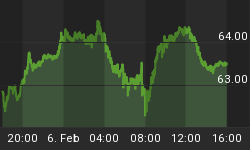There is a fascinating story from Robert Peston, the BBC's business editor about his interview with Hank Paulson, who was the US treasury secretary at the time of the Lehman crisis. Paulson said that he was told by the Chinese that they had a message from the Russians suggesting they club together to drive down the prices of Fannie and Freddie "to maximise the turmoil on Wall Street". The Chinese declined, but in doing so they made sure the Treasury was aware that China and Russia know that between them they have the power to break western capitalmarkets.
This presents a problem for NATO's geopolitical strategists, exposed by Russia's unchallenged absorption of Crimea. Assuming military options are a non-starter, the West's financial condition is too fragile to withstand an alternative financial war with the world's largest energy exporter and eighth largest economy, let alone a combination of Russia and China working together.
America also has a problem in the Pacific containing China's territorial ambitions, including attempted possession of the Senkaku Islands from Japan and the Scarborough Shoal from the Philippines. Unless America punishes Russia adequately for her take-over of Crimea, China may be encouraged to believe that the US is a push-over. At least, that is the worry in Washington.
This is why the US and also the UK would have gone much further than the more parochial EU in imposing sanctions against selected Russians and Ukrainians. The division of interests within NATO has allowed Putin to outmanoeuvre the west. He is now taking the steam out of the situation by stating he has no further plans with respect to other Ukrainian regions. However, this is not believed by the Ukrainian government and the West, nor indeed by the Russian people, who were given a more gung-ho message.
China's position in this should not be neglected. As co-founder with Russia of the Shanghai Cooperation Organisation (SCO), China is bound to be on Russia's side or at least to not oppose her, a point driven home by her abstention on a US-led resolution at the UN censuring Russia over Crimea. Only this morning, Putin publicly expressed his gratitude to China.
This means that the West is not just confronting Russia, but potentially China and the other SCO members as well. Russia's relationship with the SCO brings with it the possibility of using gold as a weapon against the West, because most governments involved with the SCO have been actively buying gold while western central banks have been providing it. So far the SCO members have been content to accumulate the west's gold on falling prices, being careful not to disrupt the market.
We cannot say the Ukrainian crisis is over. It is more than likely Putin will not be fully satisfied until there is a Russian-friendly government in Kiev. And if a senior Russian politician cares to have another conversation with China over maximising turmoil on Wall Street, driving up the gold price is the obvious financial weapon of choice.















